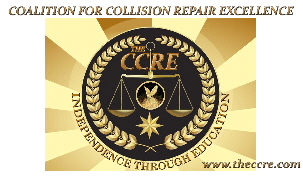
 |
|
Why Do We Keep Trying To Reinvent The Wheel Complaining To The DOI |
|
Recently there has been a substantial amount of dialogue on social media and the trade press regarding body shops filing complaints with their state’s insurance departments. Many of the answers they receive to these complaints are all the same. These departments, most of the time, are unable to do anything to help the consumer. Many people say the underlying issue is that the insurance commissioners are in the pockets of the insurance industry. This may be true and probably is, but let’s look at this from a different perspective. Insurance departments regulate the conduct of insurers and make sure those insurers remain viable and solvent to be able to pay any claims against them from insureds and claimants. Insurance departments do not regulate repair shops. Those shops usually come under the jurisdiction of the state attorney general or a motor vehicle governing agency. Let’s not fail to understand that collision repair is not the “business of insurance”. Whether an insurer pays for a specific operation, part or procedure is not the business of insurance. Those types of payments are probably outside of the DOI’s jurisdiction. I hope you can see why complaints of this nature usually remain unresolved. For many years now, our industry has complained about how the insurers interfere and stick their noses into our business and rightfully so we don’t appreciate their intrusive behavior. That’s all well and good, but let’s look at the other side of the coin. We are always trying to interfere with the way they do business and we continue to attempt to pass some sort of legislation in order to stop some of these insurer practices. We are doing to them what they do to us and when they fight back, we get upset because the laws they get legislators to enact usually work against us and our businesses. One only has to look at what has happened in Colorado recently. The state DOI was asked to determine what was “reasonable” for insurers to pay for certain procedures etc. Well, the answer the shops got was not what they thought they would hear. The DOI said it couldn’t determine if all OEM procedures that were necessary would be required to be paid for by an insurer. The DOI made a stupid comment that the insurer only owes for “damage” to the vehicle. Figure that one out. The DOI’s sometimes don’t even understand or know how to interpret the insurance policy contracts that are sold in their state. The DOI doesn’t understand what “We will pay the actual cash value of the repairs” means. The cash value of the repairs is the retail price to restore the damaged vehicle based on an invoice, submitted by the vehicle owner, stating all parts and procedures necessary for the reconstruction of the damage. Of course, this is based on first party issues where a contract (policy) is in effect. Third party issues are completely different since there is no contract between the at-fault party and the damaged party. So what’s the answer? Well, first of all, our industry has to realize that the responsible party for payment of repairs is the vehicle owner or the person that entered into and signed the repair contract. It is not this industry’s problem to collect for the repairs from the insurer on behalf of the insured. We must let the insureds seek reimbursement from whoever owes them for the damages. We can no longer take on the consumer’s battles with an outside entity. Sooner or later consumers will realize who the bad guys are. We can not shield them from this anymore. For many years we have taken on the responsibility of fighting and arguing with insurers on behalf of our clients and we usually came out on the short end of the stick. Several shops have begun to put in place a written payment policy explaining the client’s responsibility for the total repair cost at the time of delivery. These shops have procedures in place to assist their customer with the process of getting reimbursed from the responsible party. Complaining to the DOI and or trying to pass legislation is a futile attempt to try to correct a problem that we created and one that we must fix. It is time to change our business mindset and let someone else fight the consumer's battles with insurers. Shop owners must learn to remove the third party interference into the contract of repair. This has been a simple and basic explanation of the existing mindset of our industry. Change is necessary in order to remain profitable. Will you help do your part to move this industry in a positive direction?
|
| [Home] [Media Articles] [Blogs] [Why Complain To The DOI] |
|
|